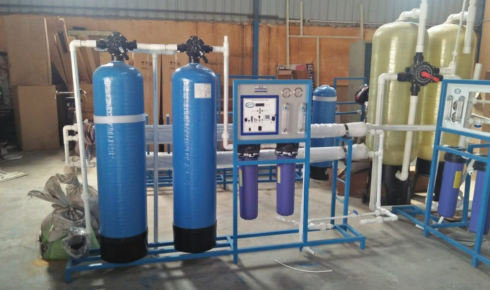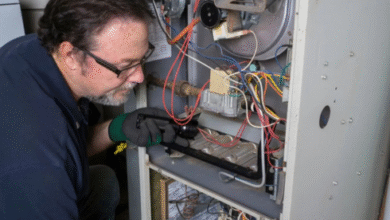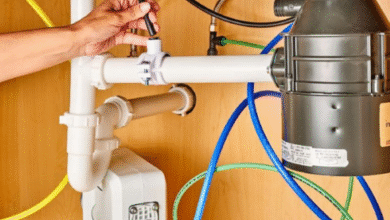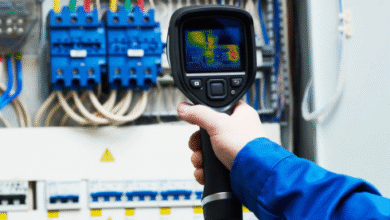Clearer, Cleaner, Smarter: Why Businesses Are Turning to Advanced Water Filtration

There’s something oddly overlooked in the hustle of running a business. We’ll obsess over branding, employee culture, marketing strategies, even the type of coffee beans in the breakroom—but water? For most people, water is a background character. It comes out of the tap, fills a glass, and that’s about it. But when you’re operating a restaurant, hotel, brewery, or even an office with hundreds of people, the quality of that water quietly affects everything—taste, health, machinery lifespan, and even customer perception.
And that’s where a proper commercial water filter installation changes the game. It’s not just about removing the odd chlorine taste. It’s about rethinking water as a core piece of infrastructure—on the same level as electricity or internet access. Ignore it, and you’re basically inviting headaches down the line.
The Invisible Cost of Bad Water
Let’s picture a small café. The espresso machine, worth several thousand dollars, works overtime brewing up shots every morning. Now, without filtration, minerals and sediment build up inside the system. Slowly, the machine strains, efficiency dips, repairs start showing up more frequently, and—just like that—the café owner faces an early replacement. Multiply that across dishwashers, ice makers, steam ovens, or even office water dispensers, and you’ve got a silent money leak happening right under your nose.
And it’s not just about equipment. Poor water quality impacts how drinks taste, how bread rises, and even how fresh produce is washed. Customers might not complain outright, but they’ll notice. They’ll feel it in the subtle difference between “that place with great coffee” and “that place with okay coffee.”
Looking Beyond Bottled Solutions
Plenty of businesses fall back on bottled water or tabletop filters. On the surface, it feels easier. But scale changes everything. What works for a family of four doesn’t work for a company serving hundreds of meals or pouring thousands of drinks each week. Bottled solutions don’t solve long-term equipment issues, nor do they eliminate the logistical headache of storing and disposing of plastic waste.
That’s why so many companies are investing in a dedicated commercial water filtration system. It’s a one-time decision that pays itself back in fewer repairs, better-tasting products, and smoother operations. Instead of reacting to problems—like burnt-out heating elements or cloudy ice cubes—you’re preventing them altogether.
Matching Filtration to Your Needs
Of course, not all businesses need the same thing. A microbrewery will obsess over mineral balance because water chemistry directly affects flavor profiles. A hospital, on the other hand, prioritizes safety and sterilization. A high-volume restaurant might just want reliable flow without scale ruining expensive kitchen gear.
That’s where the “commercial” part of filtration earns its weight. These aren’t off-the-shelf gadgets—they’re built for scale, durability, and consistency. And the technology ranges from activated carbon filters that handle taste and odor, to reverse osmosis systems that strip away nearly every contaminant.
The trick is understanding what your building needs. Is your local water supply hard? Are there seasonal changes? Does your business rely heavily on ice production? These details matter, and a good installer will customize the setup accordingly.
When Flow Matters More Than Anything
One overlooked factor in water treatment is volume. Businesses don’t just need clean water—they need a lot of clean water, all at once. Picture a hotel at full occupancy on a Saturday morning: showers running, kitchens prepping breakfast, laundry cycling through towels. If the system can’t keep up, clean water turns into a bottleneck.
That’s where a high flow commercial water filter makes all the difference. It ensures you’re not stuck waiting or rationing. The system keeps pace with demand, so whether it’s ten cups of tea or a hundred, you’re not compromising on quality. And that reliability? Customers notice. They won’t thank you for it outright, but the absence of complaints is its own reward.
Why Installation Is Half the Battle
One common misconception is thinking that buying the right unit is enough. But like most infrastructure decisions, installation is where the magic happens—or doesn’t. A sloppy install leads to leaks, pressure issues, and frequent maintenance calls. A professional approach, though, ensures seamless integration with your plumbing, smart placement for easy filter changes, and the right sizing for future growth.
Think of it like fitting new tires on a sports car. Even the best tires in the world won’t matter if they’re mounted wrong. Water filtration works the same way: the system only performs as well as it’s installed.
The Bigger Picture: Sustainability and Trust
Beyond the nuts and bolts, water quality ties into sustainability and brand image. Customers are becoming increasingly aware of how businesses handle resources. Offering crystal-clear drinking water, avoiding unnecessary plastic bottles, and keeping operations efficient all send a quiet but powerful message. You’re not just saving money—you’re signaling that you care.
In some industries, trust hinges on those signals. A spa that smells faintly of chlorine-laced water won’t feel luxurious. A restaurant serving cloudy ice cubes risks looking careless. Even an office setting, where employees drink the water every single day, shapes workplace satisfaction in ways people rarely articulate out loud.
Wrapping It Up
So, is water glamorous? Not really. But is it essential? Absolutely. Businesses that treat water as a priority reap rewards that show up everywhere—better products, happier customers, longer-lasting equipment, and even smoother compliance with health standards.
If you’re running a business and haven’t given your water more than a passing thought, maybe it’s time. A proper system isn’t just an upgrade—it’s insurance, efficiency, and peace of mind rolled into one.
Because in the end, water isn’t just water. It’s the foundation for everything you build on top of it. And making sure that foundation is clean, safe, and reliable? That’s not optional—it’s smart business.




